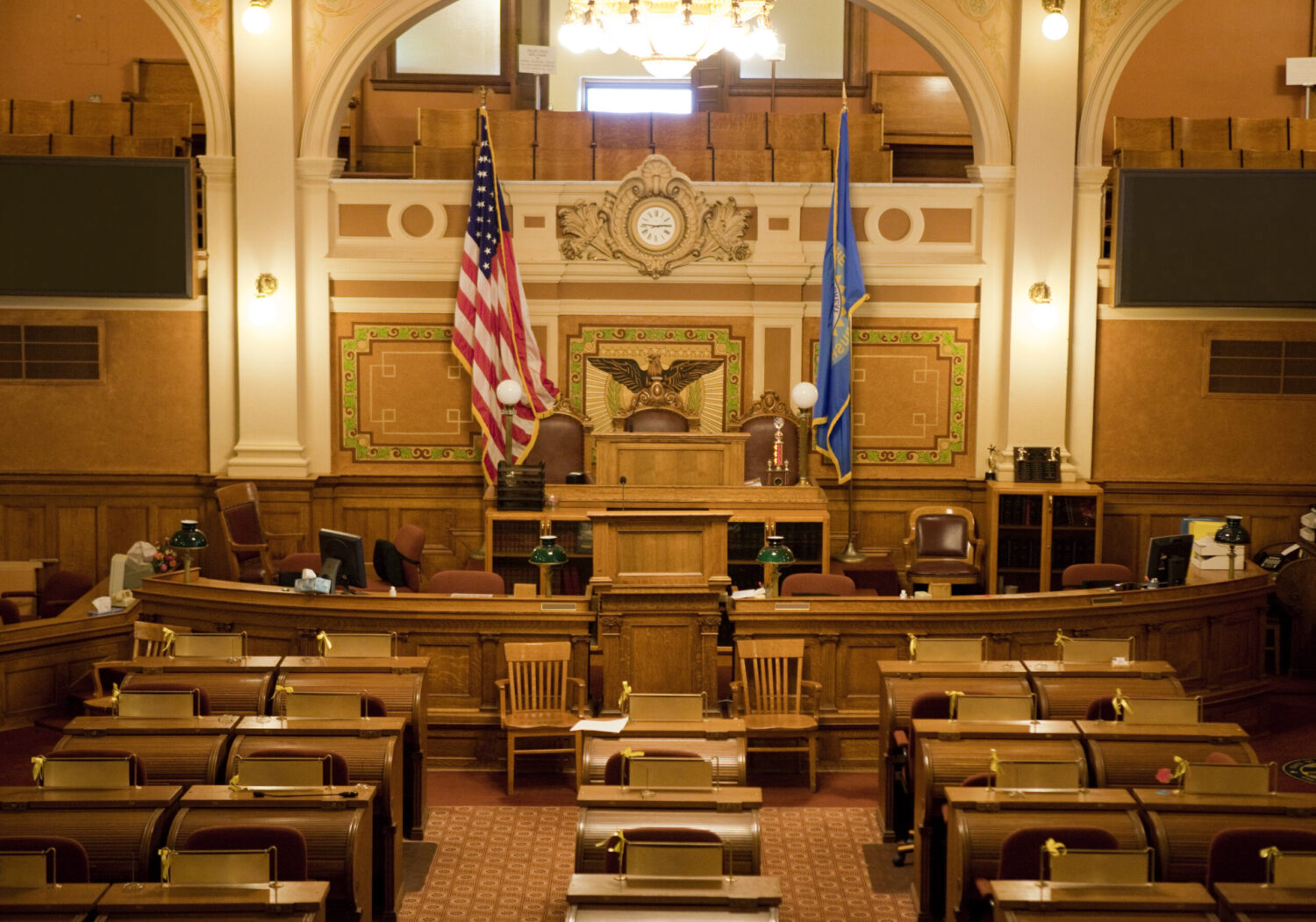
John Hult, South Dakota Searchlight – Primary voters would pick their party’s nominees for attorney general and secretary of state under a bill that cleared a state House committee Monday morning.
House Bill 1198 is the third attempt in recent years – and the second in 2024 – to take candidate selection for some offices out of the hands of party conventions.
Rep. Tyler Tordsen, R-Sioux Falls, presented his latest proposal during a House State Affairs Committee hearing less than a month after his resolution with similar aims failed in the same room.
Currently, legislative, federal and gubernatorial candidates are selected by primary voters in South Dakota. The state is one of three that still chooses its candidates for the remaining constitutional offices – lieutenant governor, attorney general, secretary of state, auditor, treasurer, commissioner of school and public lands, and public utilities commissioners – at a convention of party delegates.
Tordsen’s initial effort to change that would have placed a constitutional amendment on the 2024 ballot asking voters to switch some nominations to a primary system. That proposal, House Joint Resolution 5001, failed 8-5 during the second week of the legislative session.
“I’ve spent the last few weeks listening and learning,” Tordsen said Monday morning.
Sweeping in all the non-primary offices and putting the change in the state constitution was a bridge too far for many opponents, Tordsen said. The Legislature cannot adjust constitutional amendments.
Tagging the highest-profile offices and placing the change into a statute that can be adjusted “strikes the balance” that Tordsen said would make the idea more palatable for the opposition.
The bill adds primary contests for attorney general and secretary of state, and would allow gubernatorial candidates to pick their own running mate for lieutenant governor.
Proponents: Primary is a fairer system
Potter County GOP Precinct Committeeman Larry Eliason returned to the committee Monday to make the same case for support he made three weeks ago. The 2022 GOP convention saw now-Secretary of State Monae Johnson bump that office’s former leader, Steve Barnett, from the general election ballot. Now-Attorney General Marty Jackley beat back a challenge, as well.
Eliason doesn’t care about any of that, he told the committee. His issue was about who was in the room for those votes. His was one of 10 small counties with no delegate at the 2022 event, as those counties don’t have the party leadership necessary to participate.
“There were more than 4,300 Republicans who voted in the primary that were not represented at the convention,” Eliason said.

Former Attorney General Mark Barnett told the committee that the one primary he lost – to now-U.S. Sen. Mike Rounds in a 2002 race for governor – was “the fairest” of all his electoral victories across decades as attorney general and circuit court judge.
In his other races as attorney general, he said, he didn’t need to bother appealing to regular voters. All he needed to do was convince a handful of party leaders to give him the nod.
“Although I’ve benefited from the convention process, I always thought, ‘This is a pretty slick way to get in. I don’t have to do much,’” Barnett said.
Opponents: Current process works
Opponents had a different take.
Sen. John Wiik, R-Big Stone City, serves as the GOP chairman for South Dakota. Winning at convention involves a lot of travel and relationship building, Wiik argued. He was one of several opponents to decry the possibility of outside campaign funding being used to influence primary races. Buying ads is easier than building relationships with party leaders, Wiik said.
“I don’t believe in shortcuts,” Wiik said.
Wiik also asked the committee why Tordsen’s bill only targets two statewide offices.
“What does it say about the rest of our constitutional officers?” Wiik said.
The precinct representatives who go to conventions are elected by fellow Republicans, R. Shawn Tornow told the committee. Tornow has been a legislator and currently leads the Minnehaha County GOP.
“These are elected positions that are showing up as a part of the process, and they are casting their votes as part of the vetting process,” Tornow said.

After debate closed, Dell Rapids Republican Rep. Jon Hansen tried to kill every piece of the bill except the one that would clear a path to what he called a “consensus” position – that gubernatorial candidates, not convention-goers, should pick their running mates.
He said the other changes of HB 1198 amount to “throwing a grenade” into the GOP in South Dakota.
“This is really reactionary politics. It’s a knee-jerk reaction to one rough convention,” Hansen said.
Hansen’s motion failed. Instead, the committee chose to consider a motion to pass the bill from Rep. Roger Chase, R-Huron, who brought a bill in 2023 to put all constitutional offices on the primary ballot.
“This is a compromise from what we saw last year, and from what we saw earlier this year,” Chase said.
The committee voted 10-3 to send Tordsen’s bill to the full House for consideration.
The “no” votes came from Hansen, Rep. Kirk Chaffee, R-Whitewood, and Rep. Becky Drury, R-Rapid City.
